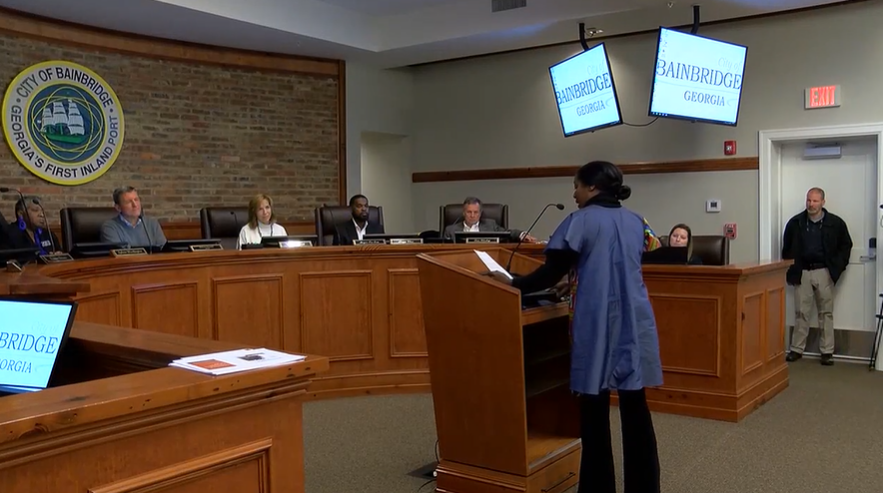Uproar erupts over plans for monkey-breeding facility in Georgia
Around 30,000 monkeys are expected to arrive in the state to be housed in the facility

Plans to build a monkey-breeding facility for medical research in southwest Georgia have triggered opposition from local residents and an animal rights group.
Their concerns were heard at a city council meeting in Bainbridge, calling for the plans to build the project to be blocked.
The plans are held by Safer Human Medicine, which hopes to build a complex to hold up to 30,000 primates, according to WALB, that will be sold to universities and pharmaceutical companies for medical research.
The company said it plans to employ about 263 workers and will invest around $270m into the project over the next 15 or more years, but is projecting that they may invest something approaching $400m as the project continues.
Council members did not directly address the opponent’s concerns on Tuesday, WALB reported, but residents and PETA officials plan to attend the county commission meeting next Tuesday to air the same worries.
Local government bodies in the Bainbridge area voted and approved for the husbandry facility, known as “Project Liberty”, to have a tax abatement for the first 10 years of the project, the Development Authority of Bainbridge and Decatur County wrote on their website.
In an open letter from Safer Human Medicine posted on the development authority’s website, the company said they are excited to bring “good-paying jobs” to the area and are committed to “saving human lives” by breeding cynomolgus macaques, a breed of monkey they say is best suited for medical research.
The company added that their project is strictly animal husbandry and is not a research facility; they house and care for the primates, providing them with toys and enrichment.
Safer Human Medicine did acknowledge those who opposed their plans to open a facility.
“While we respect the views of those who may not agree with our purpose, we think it is important to share the facts with this community,” the company wrote.
“Given their genetic similarity to humans, primates provide the most reliable model to demonstrate how a drug will impact our biological systems. No one would ever imagine giving a drug to a family member, a loved one, or anyone else battling a disease or needing medical attention unless it had been thoroughly evaluated for safety.”
However, some residents have not been so convinced with the project, such as Yvena Merrit, who said according to WALB,that it is “overall jacked up”.
“How are we supposed to survive this? They have diseases. We have a huge water right here, the Flint River, so the environment is a big thing too,” she said.
Dr Lisa Jones-Engel, PETA’s senior science advisor on primate experimentation, said, according to the outlet, that there’s a risk of dangerous pathogens coming from the animals.
“The cost that this community is going to bear when they drop 30,000 monkeys into an environment that has no business holding 30,000 monkeys. It’s their tax dollars, it’s their backyards, it’s their environment. They’re the ones bearing the risks,” Ms Jones-Engel said.
However, in the open letter, the company claims that such concerns should not be a worry, as the primates will be rigorously quarantined and nothing discharged from their facility, such as wastewater, will create an environmental hazard or risk.
Others are also concerned that the number of monkeys that could eventually fit inside the facility will be over double the number of people who live in Bainbridge, an estimated 14,000.
Yet Rick McCaskill, the director of the development authority, told WALB: “There are going to be a lot of monkeys, there’s no question. We got more cows in the county than we got people too, and we got more chickens in the county than we have people too.
“So, you got to kind of take a deep breath and look through all the misinformation out there.”
The Independent has contacted Safer Human Medicine for comment.
Join our commenting forum
Join thought-provoking conversations, follow other Independent readers and see their replies
Comments
Bookmark popover
Removed from bookmarks